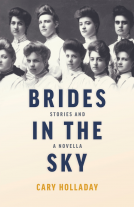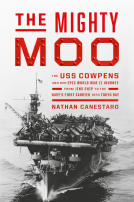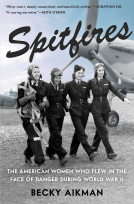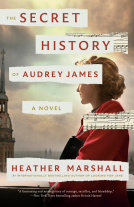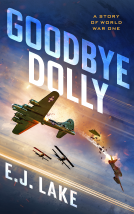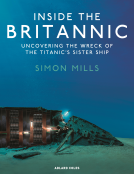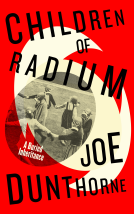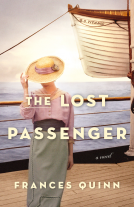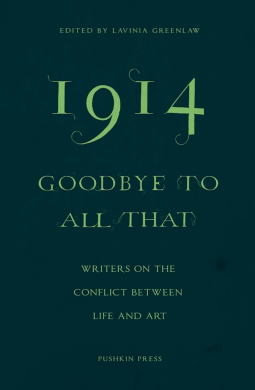
1914 - Goodbye to All That
Writers on the Conflict Between Life and Art
by Jeanette Winterson; Colm Toibin; Erwin Mortier; Elif Shafak
This title was previously available on NetGalley and is now archived.
Send NetGalley books directly to your Kindle or Kindle app
1
To read on a Kindle or Kindle app, please add kindle@netgalley.com as an approved email address to receive files in your Amazon account. Click here for step-by-step instructions.
2
Also find your Kindle email address within your Amazon account, and enter it here.
Pub Date Sep 01 2015 | Archive Date Jul 02 2015
Description
Interpreting this title as broadly and ambiguously as Graves intended, these essays mark the War's centenary by reinvigorating these questions. The book includes Elif Shafak on an inheritance of silence in Turkey, Ali Smith on lost voices in Scotland, Xiaolu Guo on the 100,000 Chinese sent to the Front, Daniel Kehlmann on hypnotism in Berlin, Colm Toibin on Lady Gregory losing her son fighting for Britain as she fought for an independent Ireland, Kamila Shamsie on reimagining Karachi, Erwin Mortier on occupied Belgium's legacy of shame, NoViolet Bulawayo on Zimbabwe and clarity, Ales Steger on resisting history in Slovenia, and Jeanette Winterson on what art is for.
Contributors include:
Ali Smith - Scotland
Ales Steger - Slovenia
Jeanette Winterson - England
Elif Shafak - Turkey
NoViolet Bulawayo - Zimbabwe
Colm Toíbín - Ireland
Xiaolu Guo - China
Erwin Mortier - Belgium
Kamila Shamsie - Pakistan
Daniel Kehlmann - Germany
Advance Praise
"A global gathering of essayists here reimagine the war from a variety of vantage points." — Guardian
"This superb collection of essays by some of today's leading writers stands out among the many books commissioned to mark the centenary of the First World War." — The Lady
Available Editions
| EDITION | Other Format |
| ISBN | 9781782271185 |
| PRICE | $13.95 (USD) |
Featured Reviews
 Nikhil S, Reviewer
Nikhil S, Reviewer
1914 - Goodbye To All That by Pushkin Press is a collection of essays by writers from across the world on what wars means to them, or how they have affected them. Many of the essays are stories of grandparents or great-grandparents who took part in the First World War or were actively affected by it. The writers come from diverse backgrounds and provide for a rich variety of experiences and a multi-dimensional approach to longing, sorrow, and silence of the unexpressed pain. There is Ali Smith, Kamila Shamsie, Daniel Kehlmann, Aleš Šteger, Elif Shafak, NoViolet Bulawayo, Erwin Mortier, Xiaolu Guo, Colm Tóibín, and Jeanette Winterson. Lavinia Greenlaw, the editor: "I didn't want writers simply to return to the past but to formulate and reinvigorate questions we should never stop exploring. They wer asked to consider the loss of literary innocence or ideals, the discovery of new ones, the question of artistic freedom, and what it means to embrace new imperatives or to negotiate imposed expectations".
Ali Smith's Good Voice reminisces about the lost spoken voices and the various tones which disappeared into the nothing forever. She converses with her father about this "German linguist who went round the prisoner-of-war camps in the First World War with a recording device, a big horn-like thing like on gramophones, making shellac recording of all the British and Irish accents he could find". Except for the fact that her father's been dead for five years. Goodbye to some of that by Kamila Shamsie from Karachi draws on experiences of growing up in a politically charged Pakistan with each potentate baying for the blood of the other in a long saga of failed dictatorships. She visits Abbottabad as a child and remembers his uncle's library and the garden, vast to a four-year old. An interesting phrase she uses is "Partition of India and Pakistan". This is interesting because politically Pakistan came into existence on 14th-Aug, 1947 when it gained freedom from the British (and India!). Though the seeds of separations had started to germinate in mid-18th-century itself. She moves to London from Karachi but then realizes this meant "giving up the world from which my fiction derived".
Elif Shafak's poignant rendering of the sudden loss of language in modern Turkey. She writes, "In the 1900s an educated Turk would speak and read Ottoman Turkish, which was written with the Arabic script but retained a Turkish syntax with Persian elements. After the establishment of the modern Turkish nation state in 1923 a wholesale cultural transformation was initiated. Since the alphabet was changed in 1925 from Arabic to Latin, today the average Turkish citizen cannot read anything that dates from before that year: the text on an Ottoman grave, the inscription on a dry fountain or a poem carved in marble...". And draws it deeper amidst the trenches of loss of Istanbulites: "It's odd that a city so ancient now has the memory of an infant". Bulawayo brings out the pain of being in a diaspora, often accused of second-hand feelings, removed and far away from one's country. She voices the protests of Owen Maseko, whose installations depict the "massacres, commonly known in Zimbabwe as Gukurahundi, affected the Ndebee regions of the country, home to Zimbabwe's second-largest ethnic group".
However, it has to be Erwin Mortier's The Community of Sealed Lips: Silence and Writing which reeks of the greatest personal loss to The Great War. That we are not born free, and the moment we are born we are assigned identities, and friends and enemies alike, is not lost on him: "As soon as we leave the womb we exchange the amniotic fluid that has surrounded us for nine months for a sea of stories in which we are submerged long before we are aware of it. And, just as we learn the hard way that it is not sensible to touch a hot stove or a frozen door handle, we gradually realize that silences occur in the stories in which are embedded that are equally untouchable. Memory too has its sore spots". His "head teacher had fought int he Resistance in the Second World War. Now he taught the grandchildren of collaborators to read and write...". Coolies by Xiaolu Guo remembers the contribution of 100,000 contracted coolies who were taken to France to dig trenches and were often killed or punished for objecting to inhuman working conditions.
Jeanette Winterson's Writing on the Wall is about the perpetual animosity between the elite and the poor, the art and the non-art, the human and the animal. "Marx's view was straightforward: Sociaism was needed to provide for man's animal needs (food and water, shelter, safety, heath, rest, a clean environment), so that man might have leisure to supply his human needs. What are our human needs? Love and friendship, family life, education, intellectual pursuit, sport, enquiry, curiosity, books, music, art in all its changing shapes and forms". But isn't art elitist? The hunger in the stomach doesn't yield to sensual paints, nor does the wound of a slaughter heal by soothing words. The hungry cannot remember, because they need to exist. The elite, not necessarily monetarily, remember because existing is passé.
All in all, 1914 is a collection of subtle remembrances of what was and what is, and possibly on what might be lest we forget.
 Annie S, Librarian
Annie S, Librarian
1914: Goodbye to All That was commissioned by 14-18 NOW, World War I Centenary Art Commissions and edited by Lavinia Greenlaw. It contains essays and stories by Ali Smith, Kamila Shamsie, Daniel Kehlmann, Aleš Šteger, Elif Shafak, NoViolet Bulawayo, Erwin Mortier, Xiaolu Guo, Colm Tóibín, and Jeanette Winterson. Most of the pieces have to do with World War I, but others are about other conflicts. The subtitle explains that this collection is really about writers reflecting on the shortfalls of art and language to address war, atrocity, and devastation.
As in any collection, there are standouts and pieces that just didn’t work for me. My favorite pieces are Aleš Šteger’s story, “Tea at the Museum,” which an old friend requests a meeting so that she can apologize to the narrator for crimes committed in a previous life. Elif Shafak writes about the radical changes to spelling and meaning in the Turkish language in “In Search of Untold Stories,” that have caused the Turkish people to have amnesia about the past. Ali Smith’s meditative piece, “Good Voice,” has its narrator searching for a way to start a story about World War I while talking to her deceased father, a World War II veteran.
1914: Goodbye to All That is surprisingly brief, but it contains a number of profundities about the questions artists (writers included) have to wrestle with and why literature is such a good medium for that wrestling. In the foreward, Greenlaw writes:
I didn’t want writers to simply return to the past but to formulate and reinvigorate questions we should never stop exploring. They were asked to consider the lost of literary innocence or ideals, the discovery of new ones, the question of artistic freedom, and what it mans to embrace new imperatives or to negotiate imposed expectations. (n.p.*)
Thus Colm Tóibín ends up writing about Lady Gregory’s circle of writers and their poetry that dealt with the war and NoViolet Bulawayo deals with the problem of speaking for people who suffered without having suffered herself. This collection is a testament to the fact that, even 100 years after, World War I haunts us all.
There is a line from Aleš Šteger’s “Tea at the Museum” that hit me particularly hard. The narrator muses aloud to the woman who committed murder in a past life that “You recover from the ghosts of the past only once the final witness has gone” (Chapter 4). Can this be true? Every generation is reacting to the traumas and ideas of the previous generations, but is it the older generations that keep the torch alive? Even once the oldest of us have passed on, their descendants will remember them until their deaths. The ghosts will be we with us for a long time. The narrator also used the verb “recover,” not “forget.” Recover implies healing and acceptance. But, as Elif Shafak writes in Chapter 5, World War I was the start of everything:
[What] would the world be like today had the First World War never happened? Would the “Second World War” have taken place, for instance? Would there still have been a Holocaust? Would things have turned out so differently that none of the tragedies of the twentieth century would have occurred?
Now that World War I is so far in the past and most of its veterans have gone, I think Shafak’s question and Šteger’s narrator’s hypothesis help explain why we keep returning to the so-called Great War. We can’t help but wonder, what if? And we clearly haven’t recovered from it, especially since World War I seems to be the start of a long series of devastations.
1914: Goodbye to All That was published last year and I fear it and its questions have faded from the public eye. This book came out amongst dozens of other books about the First World War. The attention span of the collective consciousness is microscopic and the western world has already moved on from the centennial of the war’s outbreak, I fear. The value of this book, even if it’s flying under the cultural radar is showing that someone (several someones, in fact) with a lot of talent are thinking about questions the rest of us won’t or can’t deal with. This book is a very good addition to the histories and biographies and documentaries about World War I because it takes a step back from objective details to look at the subjective effects on our psyches. And, as Bulawayo points out, World War I isn’t the only bad thing to have happened. Perhaps learning how to “recover” from it will help survivors of more recent mass violence.
I received a free copy of this ebook from NetGalley, in exchange for an honest review.
* Quotes are from a digital advanced reader copy of 1914: Goodbye to All That, published in 2014 by Pushkin Press. Page numbers are no available.
 Media/Journalist 219364
Media/Journalist 219364
A slim anthology of writers' recollections of World War 1 and how it has affected them, the long shadow of that war to end all wars still reaches into the lives of these contemporary writers, consciously or not. Yet the reach is sometimes fragmentary, understandably. Here’s writer Ales Steger: “Yet the more I read, the more I realise how alien the First World War feels to me: a fabrication, a monument, an archive ...” and again, “You recover from the ghosts of the past only once the final witness has gone ... The closest we can get to what truly happened may be in literature and photography, perhaps some films.” Here’s Erwin Mortier on silence and memory: “We gradually realise that silences occur in the stories in which we are embedded that are equally untouchable. Memory too has its sore spots.” Meanwhile Jeanette Winterson uses the theme of the war to reflect on art and life and the increasing marginalisation of the arts: “We can always afford a war. ... But poetry and music, painting, dance, drama, storytelling are not bolt-ons of modern life; they are our earliest expressions of what it means to be a human being. ... If art is a luxury then being human is a luxury.”

